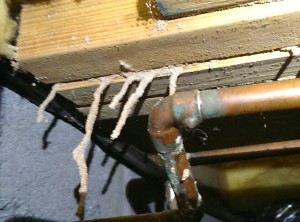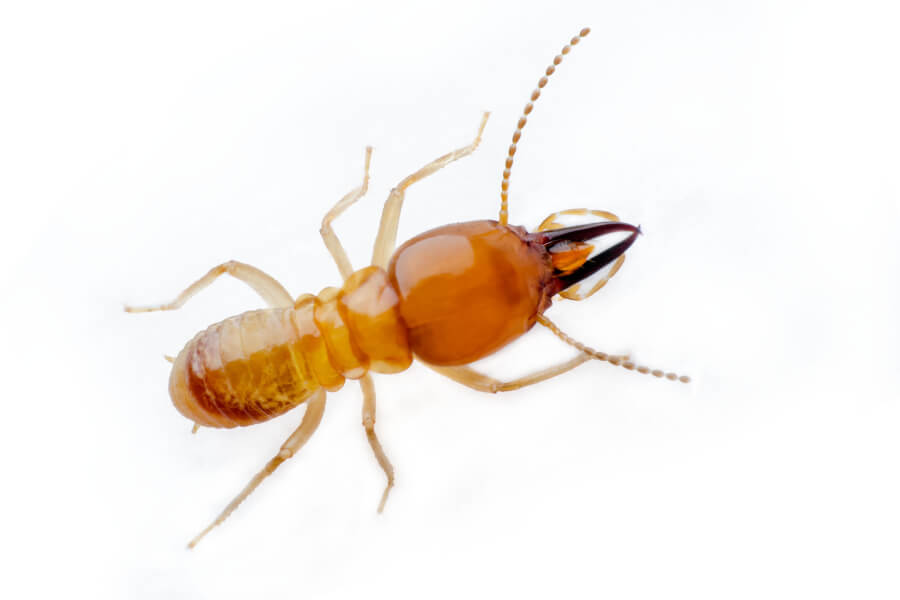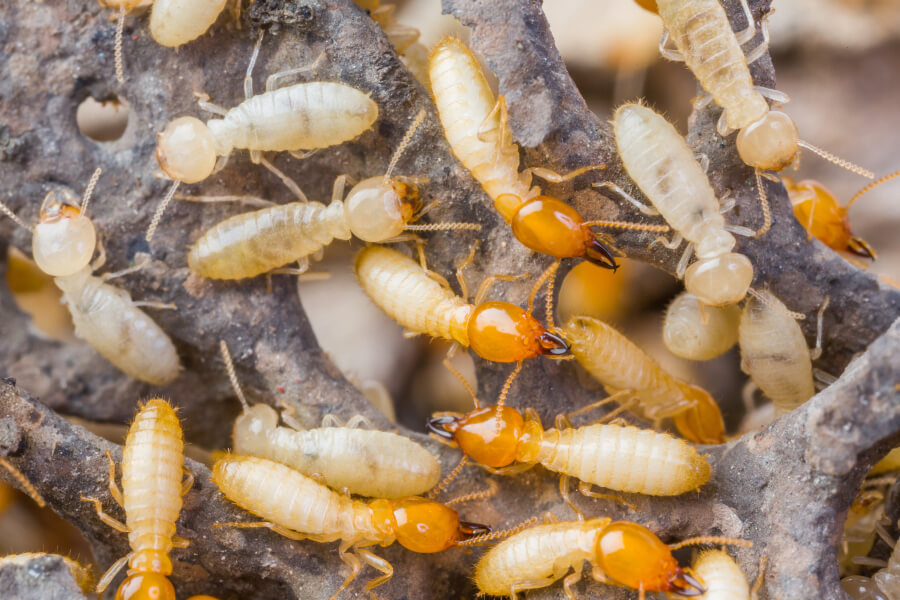When are termites active? When is termite season?
Termites are reason for concern, and two of the most commonly asked questions we receive at The Bug Man office are: “When are termites active?” and “When is termite season?”. In Tennessee, termites are actually active year-round. We have found active termites in crawl spaces in the winter time when there has been snow on the ground. Yeah, pretty funny… snow on the ground in middle Tennessee? Ha! That hardly ever happens. The termites may not be as active, or active outside in the mulch when the ground turns cold but, with our heated homes, the crawl spaces stay warm enough to sustain termite activity year round.
Most people become aware of termite activity during termite swarm season. In middle Tennessee, this generally occurs in the spring time, between March and May. This is the time of year when you see the alate termites (the winged termites) emerging from the walls, floors, and ceilings of homes. Swarm season is The Bug Man’s busiest time for termite work because most homeowners are calling in with sightings of the termite swarmers. Most swarming termites will die after swarming, as they become a food source for birds, lizards, and other insects and spiders. And the termites that swarm indoors all die if they are unable to return to the soil in short order after locating a suitable mate.
Termite swarmers are not the termites that homeowners need to fear, but they are a great indicator that you have an infestation. The termite colony consists of termite workers that consume the cellulose in wood and feed the rest of the colony. These are the termites that cause the damage to structures. Our treatments are designed to target and eliminate the colony of termites and protect the structure from future attacks. The Bug Man treatment of choice is Termidor HE. Termidor has been proven to last for over 15 years in studies, and we are able to offer a 20 year renewable warranty with our treatments.
When should I have my home inspected?
The Bug Man recommends having a termite inspection every 12-18 months. Termite inspections can be completed year round in Tennessee. During this inspection our certified technicians will inspect all accessible areas for evidence of termites. We inspect for termite shelter tubes, tunnels, exit holes, wood debris in crawl spaces, and other conducive conditions that can lead to a future termite infestation. Even with a complete inspection, it is still possible that a structure can have a termite infestation that goes undetected. Termites can gain entry behind brick, through block, travel behind walls and under floors. Many of these spaces are not accessible during a visual inspection. Many times, even the professional must wait until there are visible signs of damage before we are able to locate an active termite infestation. This is the reason that we recommend treatments on homes even when there is not a current visible sign of termites. Termite treatment is one of the maintenance requirements of home ownership. Once a home is under a termite protection treatment and warranty, we continue to perform yearly inspections to ensure the home remains termite free.
The Bug Man offers a free termite inspection and quote for Termidor HE Termite Protection. Our certified technicians will provide a detailed written report of findings and quote for Termidor HE Termite Protection Protection. Our goal at The Bug Man is to educate and provide the findings of our inspection so you have all the tools necessary to make a decision on how best to protect your home.





